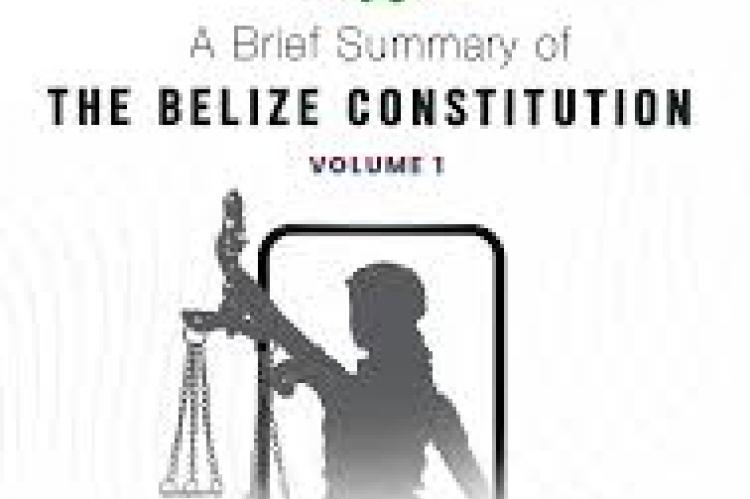Constitution on the Edge: Why Belize Must Reject the 13th Amendment
By: Omar Silva I Editor/Publisher
📰 NATIONAL PERSPECTIVE BELIZE
Belize City: Thursday 10th July 2025
How much power is too much?
This question now sits at the heart of Belize’s most dangerous constitutional moment in decades.
The 13th Amendment Bill—rushed forward under the banner of “national security”—proposes nothing less than a fundamental rewriting of the rules that keep our democracy alive. It is the most brazen attempt yet to legalize overreach, retroactively excuse wrongdoing, and cement impunity for leaders who failed to fix crime through lawful means.
This is not a theoretical concern.
This is an existential threat.
What the 13th Amendment Proposes
The Bill aims to amend Section 18 of the Belize Constitution, which governs when and how States of Emergency (SOEs) can be declared.
Under the existing Constitution, an SOE may be declared only in cases of:
- War
- Invasion
- Insurrection
- Natural disaster
- Other extraordinary threats that endanger the life of the nation
SOEs are meant to be temporary measures, requiring strict oversight and time limits.
Instead of respecting these guardrails, successive governments have since 2020 used SOEs repeatedly as a tool for ordinary crime control, particularly in Belize City’s Southside. Thousands have been detained without charge. Families have been terrorized by dawn raids. Children have been swept up in indiscriminate crackdowns.
The Supreme Court ruled unequivocally that this was unconstitutional—a misuse of emergency powers to substitute for proper policing and social policy.
But rather than comply, the government has chosen the path of legal revisionism.
The 13th Amendment does four things:
1️⃣ Expands “public emergency” to include “persistent gang violence”—permanently normalizing the use of SOEs for routine crime.
2️⃣ Applies this change retroactively, effectively declaring that all past SOEs—no matter how unlawful—are now magically legal.
3️⃣ Removes meaningful judicial oversight by codifying Parliament’s power to suspend rights almost at will.
4️⃣ Immunizes the State from legal accountability for abuses committed under prior SOEs.
In other words: When they broke the law, they did not fix their behavior—they moved to change the law.
Why It Is So Dangerous
George Myvett, a respected constitutional scholar, has called this “the most reckless power grab disguised as reform.” He is right.
Consider what this precedent means:
🔴 If a government can retroactively declare its past illegal acts constitutional, there is no limit to what it can do next.
🔴 If Parliament can redefine “emergency” whenever it fails to govern effectively, every failure becomes an excuse for more power.
🔴 If the courts can be overridden by a simple majority vote, the separation of powers is functionally dead.
What starts with crime will not end there.
Tomorrow, the pretext could be protests, strikes, or elections.
This is how democracies degrade:
- First, the abuse.
- Then, the normalization.
- Then, the repetition.
Regional Parallels: A Familiar Script
Belize is not alone in facing this temptation. Across Latin America, we have seen this playbook before:
El Salvador’s Bukele declared an indefinite State of Exception, suspending constitutional rights and detaining over 75,000 citizens without trial. The result? Popular applause—until the machinery of repression turned inward.
Nicaragua’s Ortega used constitutional amendments to criminalize dissent and ban opposition candidates.
Venezuela’s Maduro retroactively changed laws to protect officials accused of corruption and human rights abuses.
Each of these regimes justified their measures in the same way:
“Extraordinary threats require extraordinary measures.”
But the real threat was not crime.
It was the collapse of accountability.
A Crime Crisis Built by Neglect
Let us be clear:
No Belizean denies that crime is real.
Gangs are real. Extortion is real. The fear is real.
But so are the reasons crime took root:
- Chronic underinvestment in schools and youth programs
- Economic inequality and joblessness
- Political corruption and patronage
- Weak, politicized policing
The same leaders who ignored these causes now promise salvation through repression.
What This Means for Our Democracy
Even before this amendment, Belize’s democracy was battered:
- A judiciary starved of resources and increasingly politicized.
- A legislature more interested in party advantage than public good.
- A public losing faith in every institution.
The 13th Amendment is not a solution.
It is the final act of desperation from a political class unwilling to face its failures.
Where Do We Go From Here?
Belizeans must decide:
- Will we allow our Constitution to become a tool of convenience?
- Will we permit retroactive laws to excuse abuse?
- Will we normalize indefinite emergency powers?
If we say yes, there will be no going back.
Today it is SOEs and gangs.
Tomorrow it will be protests and elections.
And we will have no defense left—because we will have voted away the last restraints on power.
A Final Call to Conscience
We did not fight for independence to become subjects of our own government.
We did not enshrine rights in our Constitution to see them sold off for political expediency.
We must reject this amendment.
We must demand real solutions—justice, opportunity, policing reform, social investment.
And we must remember:
When a government tries to legalize its own abuses, it forfeits the moral authority to govern.
What kind of monsters did we vote for?
Only the kind we tolerate.
The 13th Amendment must fail.
For the sake of Belize’s democracy, and the dignity of every Belizean, we must not let this pass.
- Log in to post comments

